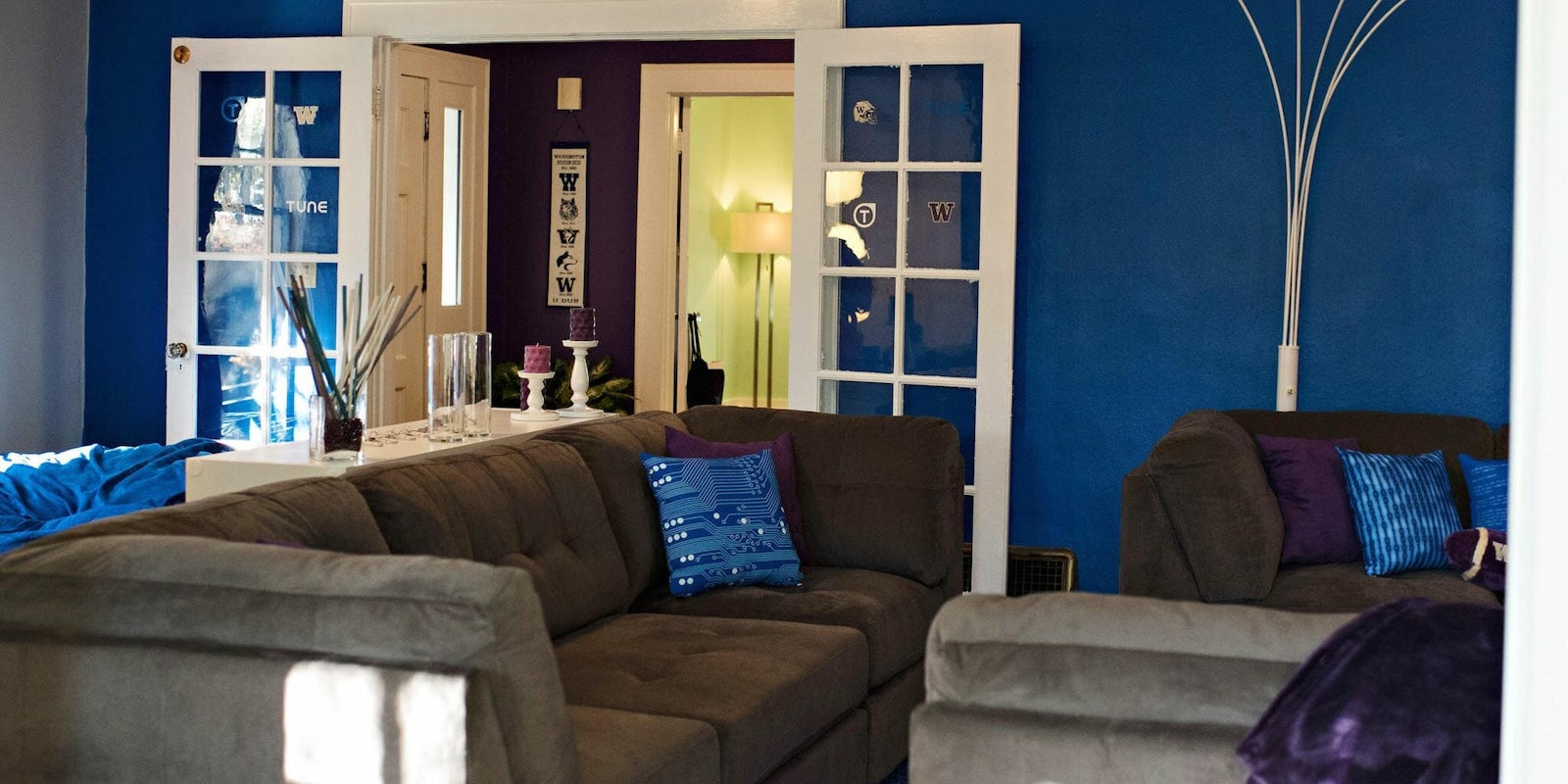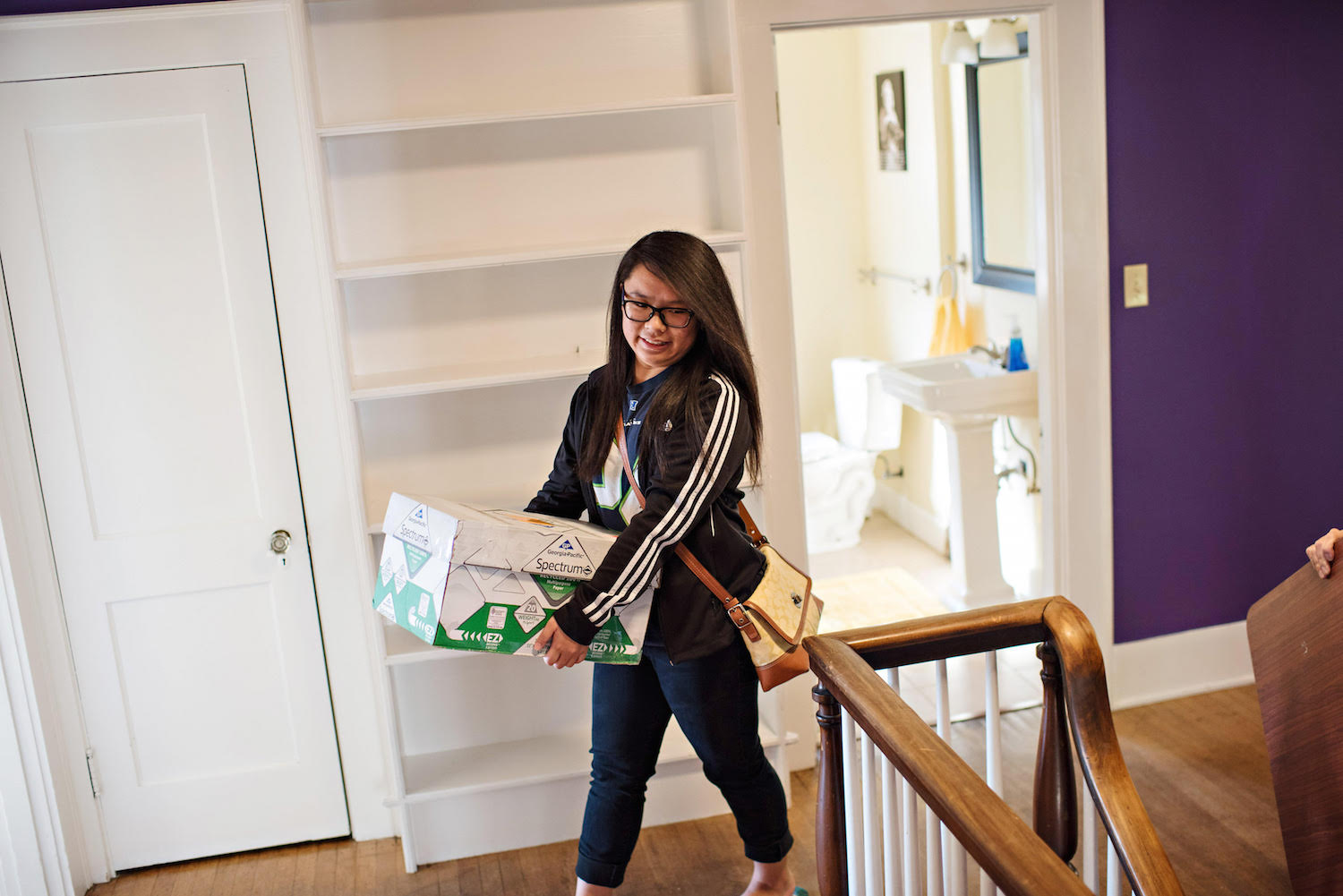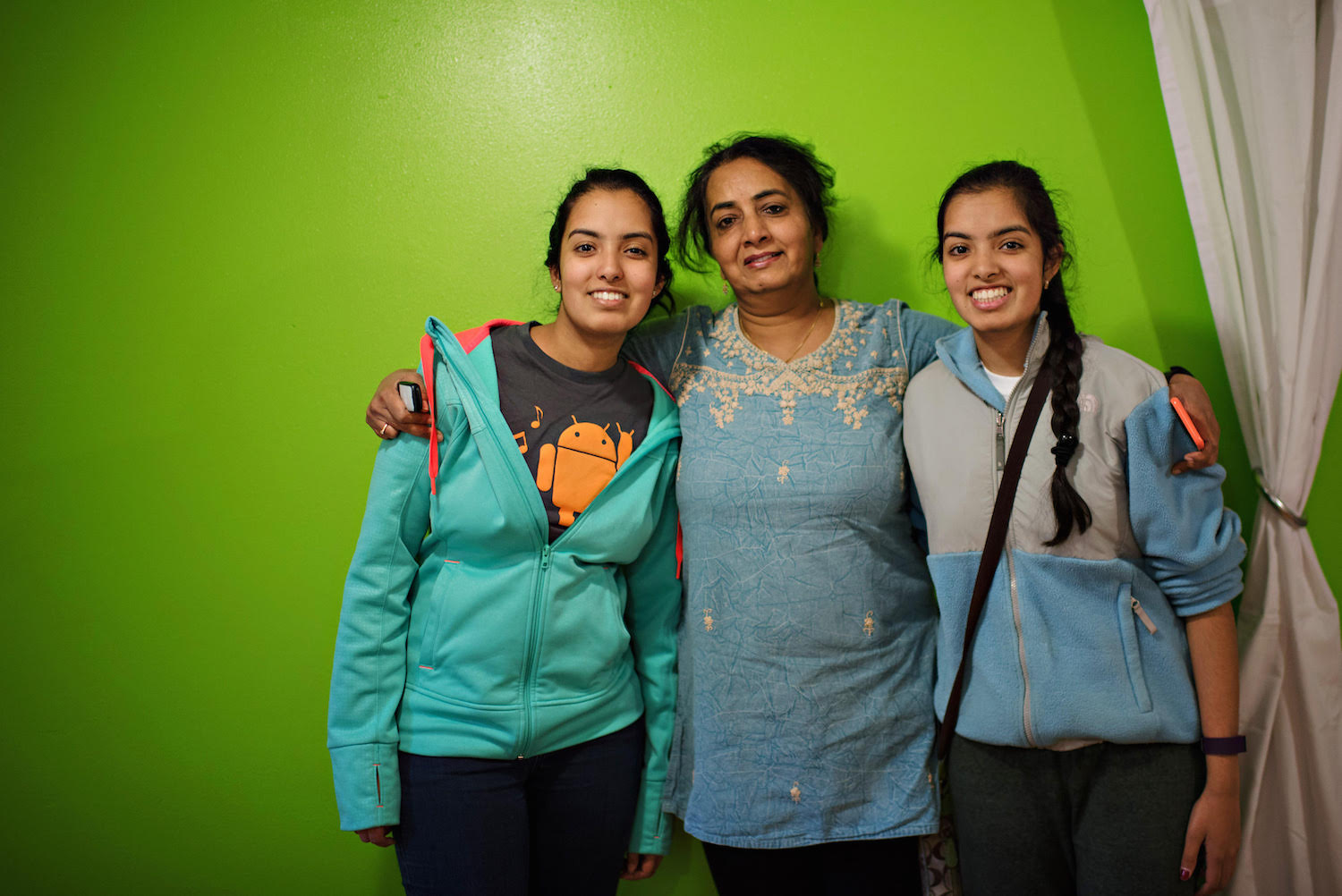At the University of Washington, an experiment in brogrammer deprogramming is underway.
There, select group of talented women will be spending the year living and working together in a hacker house. Mobile marketing startup TUNE gave eight women—three freshman, two sophomores, two juniors, and one senior—a room and board scholarship to help support them as they study computer science and related disciplines while exploring education and employment opportunities tied to technology and other STEM-related industries.
Throughout the school year, the women will get to meet and learn from a revolving door of mentors and leaders in Seattle’s tech industry. But equally beneficial, especially for the younger students in the house, is to live and work with peers who are just starting their careers, or still figuring out what they want to do after graduation.
“It’s nice that in such a male-dominated industry, when you’re surrounded by women who are so involved in tech, it kind of changes the way you think about the field,” Meredith Lampe, a computer science junior focusing on human and computer interaction, said in an interview with the Daily Dot. “Just that it makes it completely normal for all these women to be going out and doing things involved in technology. Even if we’re not experiencing adversity, it’s nice to be in that mindset that this is exactly where it should be.”
Lampe worked at Microsoft over the summer, and noticed that whenever there were developer events, mostly men attended. While she said she was never discriminated against, being surrounded by men while trying to feel included and like you’re part of a team can take some getting used to.
TUNE cofounders Lee and Lucas Brown based the program off their own college experiences. The Browns lived in a dormitory for students who wanted to become entrepreneurs. Their experience is not necessarily unique, although when most people think about group housing for programmers or entrepreneurs, the image of a high-tech frat house comes to mind. There’s no shortage of Craigslist posts offering bunk beds and common areas to young programmers. This stereotype has made it to Hollywood, where TV shows like HBO’s Silicon Valley portray a house full of bros all working on building the next big startup.
The TUNE house is turning that stereotype on its head, encouraging the women to form communal bonds while working on projects that vary wildly based on interests and university projects.
“For us, it’s about creating a community of passionate female students and the things they learn and build within the house is something that is theirs,” Kristina Linova, engineering manager at TUNE said. “Whether they start a company, or whether they build an app, or whether they hack, it all belongs to them. As you have seen in other potential ‘hacker houses,’ is it’s not a scholarship-based program.”
The whole company was involved in creating the TUNE house. Over 50 employees volunteered their time to repaint the entire house, replace the carpeting, install smart appliances and security systems, and turn the house into a comfortable space for eight women to share for a school year.
Larissa Ho, an incoming freshman at the University of Washington, said she went to a very diverse high school, where computer science programs were evenly split among men and women, with many students of color. But when she went to a college computer science class, she felt like she might not belong.
“I had the opportunity to go to a camp at UW on scholarship,” she said. “It was a C++ camp, and there were two other girls in our class, and I was the only non-white student, and our teacher was a white male. It was hard to picture someone like me in this field, when everyone around me was white and male.”
At the house, Ho is pleasantly surprised how well the women get along, and that the first week or so together has been spent balancing schedules, discovering interests, and finding personal space in the busy house where the students regularly run in and out, off to school, internships, or jobs at tech companies.
The value for Ho, she said, isn’t just about academics, but finding a sense of community and establishing longterm friendships. Because while it is a house dedicated to achievers in engineering, they are still college students, and can find value in things like group dinners and conversations that go beyond work and school.
“I really like how mentorship provides the opportunity to bounce ideas off of each other and getting advice for college or the workforce,” she said. “But also to have random conversations with someone who sees things differently from you.”
The conversation and focus on diversity in technology is only growing stronger, especially as tech companies lay the groundwork to better foster inclusion and equal representation in their companies. Although companies are vocal about changing, very little has been done to move the needle. At Apple, for instance, one year after the public commitment to improving diversity, the company had increased the number of women and black employees just one percent.
Ho says that while the industry is changing, society still views boys and girls are differently, therefore provides different opportunities when it comes to STEM studies and careers. She hopes to start her own organization for women in STEM to help combat those stereotypes and work with students coming into the field.
Eight women might be a drop in the bucket in terms of numbers in the Seattle tech scene, but the students are hoping to have a large impact on the industry itself. Linova said that the goal of the program is to build a sustained live and learn community and grow the efforts around the University of Washington. Beyond potential partnerships and the support of mentors and companies in the Seattle tech community, word-of-mouth is helping to spread the idea and get other young girls inspired in pursuits of computer science.
“My mom is a pediatrician and she sees tens of kids every day and frequently she tells me she brings the things that are happening at UW, specifically in computer science, and that I’m living in this house specifically with other girls who are studying computer science,” Lampe said.
“It’s kind of funny little situations like that that you don’t really think about. It is a small focused effort to a very small group of girls, but I think the splash is pretty big.”
Photo via TUNE




